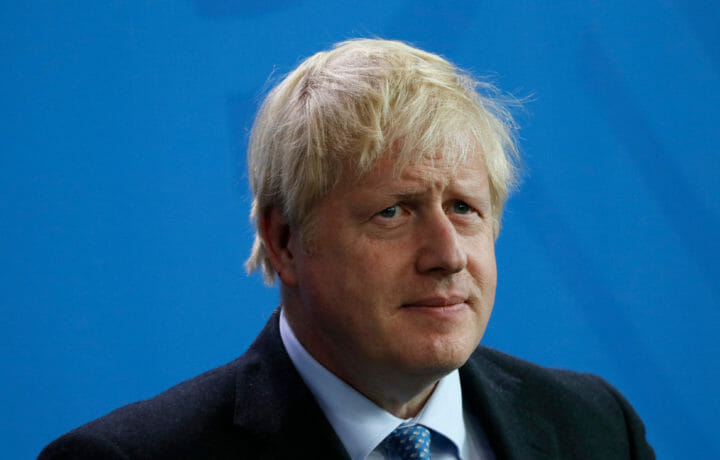Saturday was a big day for Ukrainian President Volodymyr Zelensky, with the United Kingdom’s Prime Minister Boris Johnson traveling to the Ukraine, along with Austria’s Chancellor Karl Nehammer. During separate visits, Johnson promised to send 120 armored vehicles along with new anti-ship missile systems, while Nehammer promised talks with Russian President Vladimir Putin.
Saturday morning, as eastern Ukraine remained engaged in a fiery battle, the world woke up to images of a surprise visit by Johnson and Zelensky. The Ukrainian press said the two leaders held talks in Kyiv, while posting numerous photographs of the unannounced meeting. Johnson stated that his visit to Kyiv was “a show of our unwavering support for the people of Ukraine” announcing a new package of financial and military aid.
Looking to leverage Austria’s role as east-west mediator, Austria’s Chancellor Karl Nehammer also met with Zelensky over the weekend, vowing to meet with Vladimir Putin in Moscow on Monday. His desire is to build dialogue with the Russian President, as the war in Ukraine continues.
Nehammer announced his visit to Kremlin after returning from his trip to Kyiv, where he met Ukrainian leaders in Bucha, the site of Russian military atrocities. The Austrian chancellor, a Putin critic, plans to build bridges by telling the Russian President that he has ‘lost the war morally’. Nehammer’s Austria is a member of the European Union, but they have not joined NATO. Deeply concerned over the refugee situation along with potential war crimes, Vienna has condemned Russia’s invasion of Ukraine and expelled four Russian diplomats earlier in the week.
Political Aspect of Trips to the War Zone Countries
Perhaps more interesting is the long string of travel by western leadership to the bludgeoned region during the ongoing Russian invasion of Ukraine. Over the years, politicians repeat similar hackneyed trips to war and combat zones. Early talks between Putin and other European leaders, including French President Emmanuel Macron, failed to yield any meaningful concessions from the Russian President.
The reality is that these extraordinary trips often help leaders increase their popularity in the plight to maintain office. Macron, with impending elections, needs to pull off a miracle to ensure successful reelection. With presidential candidate La Pen drawing ever closer during Sunday’s first round of the French presidential election, it remains to be seen if Macron’s Russian trips were successful politically at home. The trips prevented nothing with regard to the Russian invasion of Ukraine.
Across the Channel in England, Boris Johnson is under hot water for inflation, energy problems, personal Covid parties, a strong labor opposition and having to deal with an unfriendly press. However, Mr. Johnson looked like an international statesman, bolstering Ukraine’s fight for freedom, secretly flying to Krakow, Poland, and taking the train to Kyiv. Tabloids claimed Johnson’s visit was a ‘PR masterstroke’. Numerous images of appreciative Ukrainians waving and shaking hands with Mr. Johnson will undoubtably boost his standing overseas and perhaps soothe some of his troubles at home.
With President Biden’s recent visit to Poland, he was able to demonstrate unwavering support for the Ukraine by the U.S. Previous presidents have traveled to combat zones, all having been a secretive and surprising. While increasing military morale, most leaders also receive a boost in public image. Hopefully, any short-term diplomatic gain will provide long term results.



